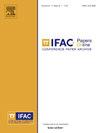多目标速度规划教学的MATLAB应用程序:最小化时间和能量消耗
Q3 Engineering
引用次数: 0
摘要
运动规划中的一个重要问题是计算沿预定路径的速度轮廓,以最小化行驶时间和能量消耗为目标。这是一个具有明显产业关联性的多目标优化问题。对于控制工程专业的学生来说,解决这个问题需要关键技能的发展。这些包括编写道路车辆的动力学方程,制定多目标优化问题,以及使用凸和非凸求解器来求解优化问题。本文提出了一个专注于速度规划问题的教学单元,由讲师提供的基于讲座的初始组件组成,然后是使用专用的基于matlab的应用程序和图形用户界面支持的交互式会话。该工具允许用户可视化速度规划问题的实例,并观察解决方案如何随着问题参数的变化而变化。与传统的分析方法不同,该工具提供了一个交互式学习环境,学生可以在其中实时实验不同的场景,从而更直观地理解多目标优化中的权衡。本文章由计算机程序翻译,如有差异,请以英文原文为准。
A MATLAB App for Teaching Multi-Objective Speed Planning: Minimizing Time and Energy Consumption
An important problem in motion planning is the computation of the speed profile along a predefined path, with the objective of minimizing travel time and energy consumption. This is a multi-objective optimization problem of clear industrial relevance. For control engineering students, addressing this problem requires the development of key skills. These include writing the dynamic equations of a road vehicles, formulating a multi-objective optimization problem, and using both convex and non-convex solvers for solving optimization problems. This paper presents a teaching unit focused on the speed planning problem, consisting of an initial lecture-based component delivered by the lecturer, followed by an interactive session supported by the use of a dedicated MATLAB-based application with a graphical user interface. This tool allows users to visualize instances of the speed planning problem and observe how solutions change as the problem parameters vary. Unlike traditional analytical approaches, this tool provides an interactive learning environment, where students can experiment with different scenarios in real time, gaining a more intuitive understanding of the trade-offs in multi-objective optimization.
求助全文
通过发布文献求助,成功后即可免费获取论文全文。
去求助
来源期刊

IFAC-PapersOnLine
Engineering-Control and Systems Engineering
CiteScore
1.70
自引率
0.00%
发文量
1122
期刊介绍:
All papers from IFAC meetings are published, in partnership with Elsevier, the IFAC Publisher, in theIFAC-PapersOnLine proceedings series hosted at the ScienceDirect web service. This series includes papers previously published in the IFAC website.The main features of the IFAC-PapersOnLine series are: -Online archive including papers from IFAC Symposia, Congresses, Conferences, and most Workshops. -All papers accepted at the meeting are published in PDF format - searchable and citable. -All papers published on the web site can be cited using the IFAC PapersOnLine ISSN and the individual paper DOI (Digital Object Identifier). The site is Open Access in nature - no charge is made to individuals for reading or downloading. Copyright of all papers belongs to IFAC and must be referenced if derivative journal papers are produced from the conference papers. All papers published in IFAC-PapersOnLine have undergone a peer review selection process according to the IFAC rules.
 求助内容:
求助内容: 应助结果提醒方式:
应助结果提醒方式:


